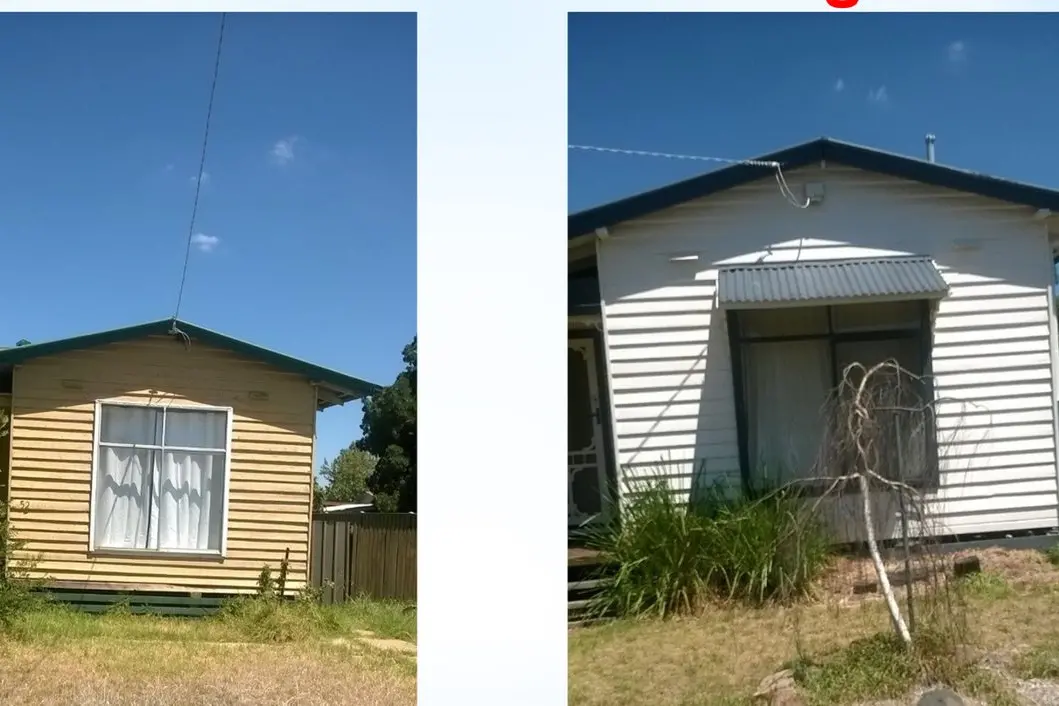PHOTO
One of the nation's leading resilience bodies has awarded a sizeable grant to a local energy renewal group.
The Foundation for Rural & Regional Renewal (FRRR) awarded $20,000 to GV Community Energy P/L last month for their project on low cost cooling for low income homes, as part of the foundation's Community Led Climate Solutions (CLCS) program.
GV Community Energy is a not-for-profit (NFP) private company and registered charity which is researching climate adaptation for homes that overheat in summer, by designing and piloting a low-cost awning solution.
The company's CEO Geoff Lodge said the awning concept could be the 'best kept secret in town' but that it did not rely on any patented or new inventions.
"I want this idea in a price bracket that is going to make it easy to deploy in an economy of scale," Mr Lodge said.
"And once we do it, then people will think 'why didn't we do this 20 years ago?'"
Mr Lodge said the project did not warrant overreach, nor was it 'rocket science'.
"Its about working in with an architecture firm and coming up with a low cost practical solution and then build some prototypes.
"And that is part of our commitment as a social enterprise, because the project recognises that a lot of houses are exposed to summer sun and so they get very hot.
"Newer modern homes compensate that with quite sophisticated air conditioning, but we are into providing low cost solutions."
FRRR awarded over $650,000 in grants to 24 NFP organisations from across remote, rural, and regional Australia for initiatives that address the localised impacts of global warming and energy industry transitions.
The CLCS program supports locally-led projects that assist locals impacted by transitions away from fossil fuel industries and/or transitions to clean energy industry.
Mr Lodge said his project would allow homes in lower SES communities to make their homes affordably cooler in summer at a very low cost by designing appropriate awnings to protect windows that allow in summer sunshine.
"We start with the easier option, which is north-facing windows," Mr Lodge said.
"Then we can move onto the more complicated if we get more funding for east and west-facing windows and come up with our own custom design, because the awnings are planned to be designed to still allow winter sun in to warm houses.
"That combination needs to give you the best of both worlds.
"Within the context of advising people to improve the warmth of the home in winter by sealing droughts and such, this will need to a holistic approach - deal with summer first and then focus on winter, because if we focus on winter, then it makes summer much worse."
Currie Park in Euroa is where the first prototypes will be installed.
FRRR’s CEO Natalie Egleton said that rural people were keen to get on the front foot with climate change, but they also want a seat at the table when transitions and investments are directly impacting their community.
“The projects we’re funding present a range of climate solutions that showcase future-focused community-led responses," Ms Egleton said.
"The support, engagement, or education of young people is a strong theme and these projects stood out as robust in their planning, engagement, partnerships, and the community support mechanisms that would be activated."
Ms Egleton said the foundation also saw groups keen to develop and share contextualised and culturally responsive knowledge and skills with the wider community through tangible actions and 'respectful' conversations..
"This reflects a desire for local community organisations to broadly engage and provide education and information on climate solutions initiatives that are relevant to improving local lives and livelihoods."
She said that of the 24 organisations receiving funding, two were First Nations-led and controlled organisations, while 11 demonstrated a partnership with local traditional owner groups for the delivery of their project.
Larger grants of up to $75,000 were awarded to help scale appropriate existing projects and also directly alleviate socioeconomic disadvantage.
Mr Lodge said GV Community Energy was started in 2008 and recently registered as a charity which legitimised its status as an NFP and which further gave him the drive to improve living standards for the community.
He said in a test case he had been inside a home with no awnings or air conditioning.
"It was probably close to 50 degrees in the kitchen - it was just unbearable," he said.
"You wonder why people become dysfunctional, and that's what motivates me, and this helps me to want to do more."
FRRR is partnered with a growing number of philanthropic organisations.
Other philanthropic or corporate bodies wanting to share the same are urged to contact FRRR at frrr.org.au/funding/community-led-climate-solutions/

